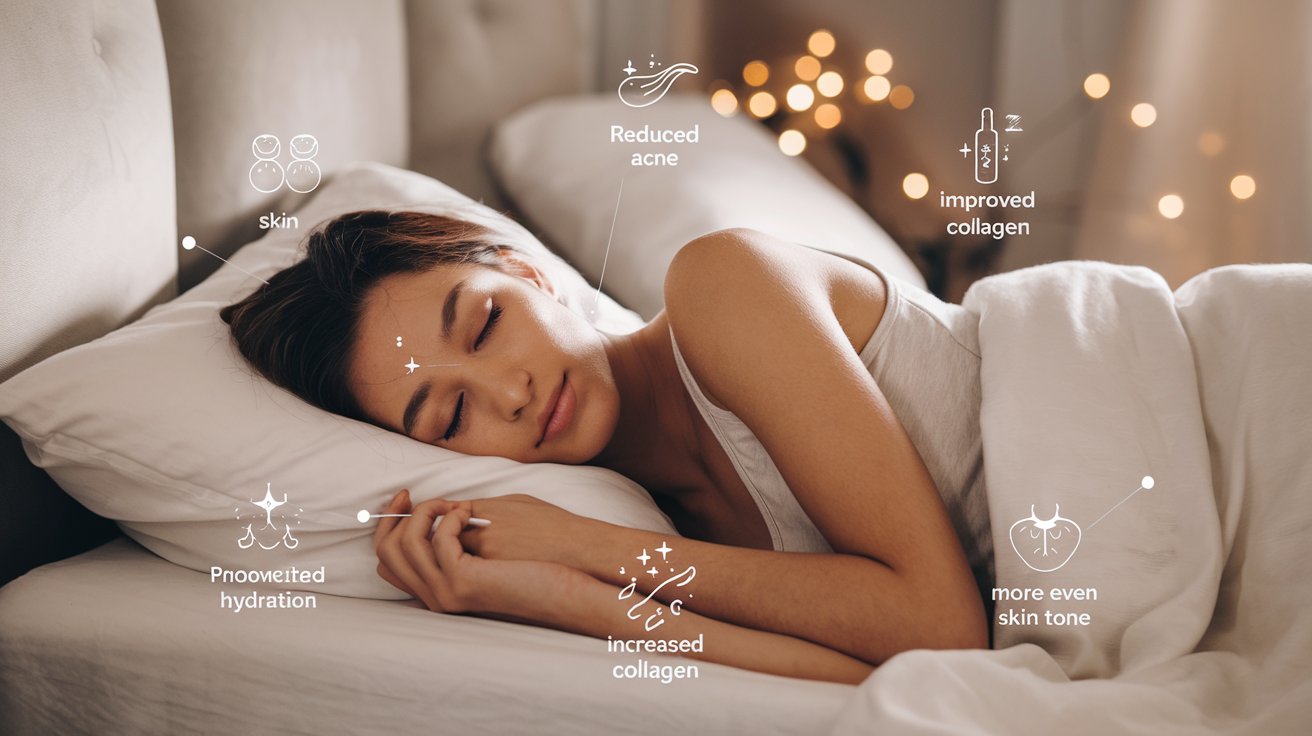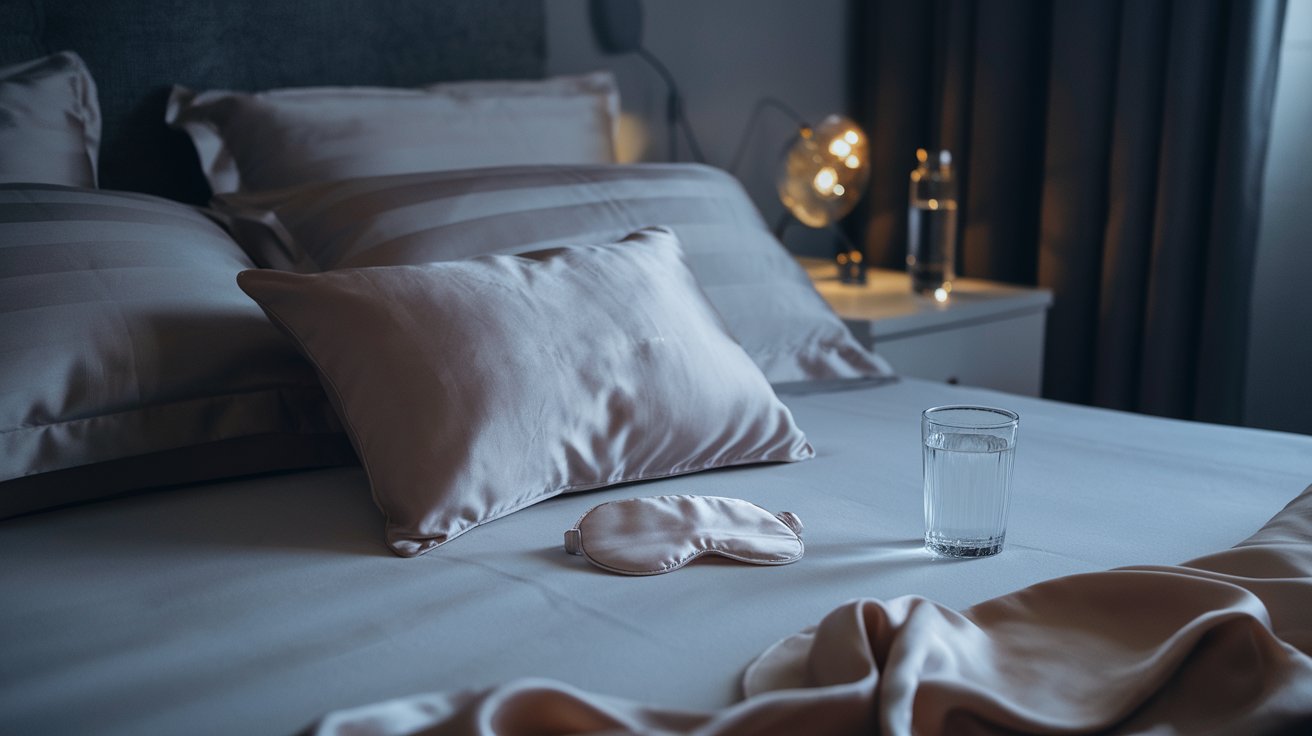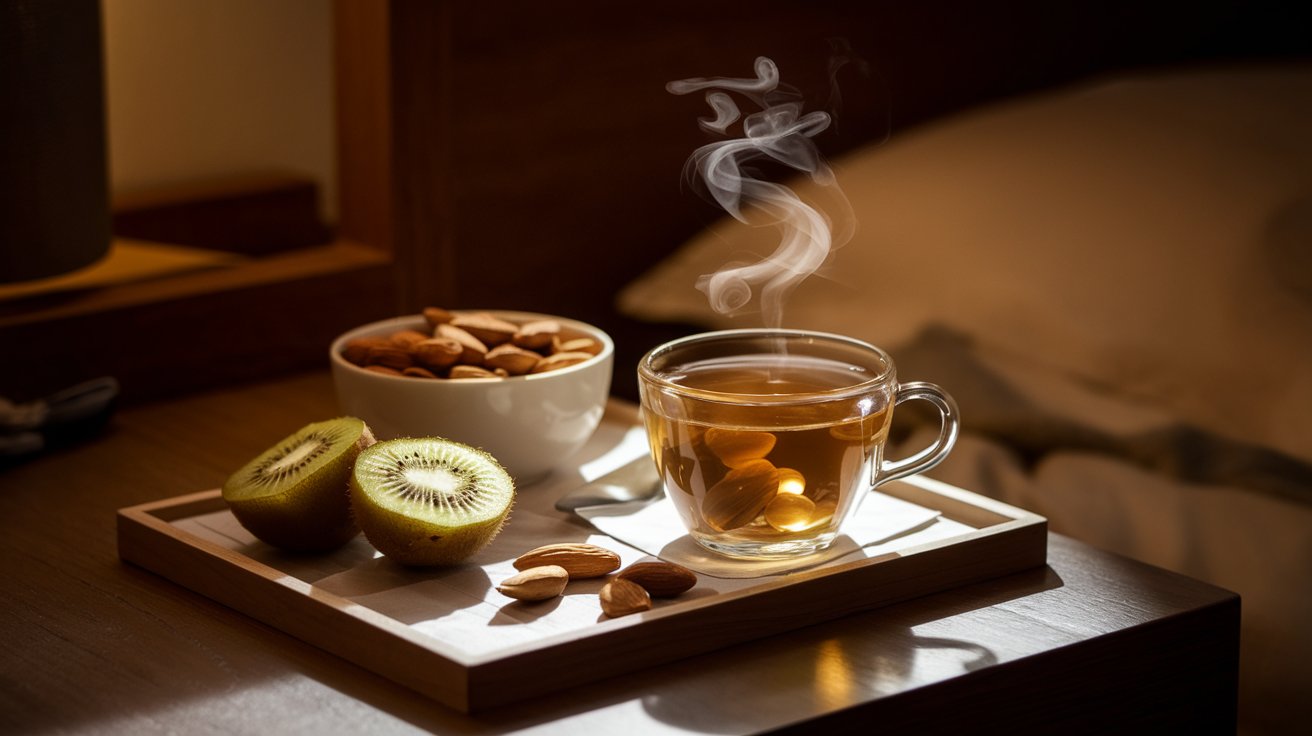When did you last arise in the morning, after having slept right through the night and found yourself looking radiant? It’s no coincidence! I realized that good night sleep has a way of changing your skin for the bette Since people have very tight schedules in their daily routines they end up neglecting the time to sleep and they do not knopw the impact of sleepless night on the look of their skins. Well, I know what you are probably wondering, how does sleep actually help to improve our skin complexion? Now, let’s take a closer look at how sleep effects skin and how improving the quality of your sleep can help to improve your facial skin.
The Science of Sleep and Skin
Sleep is the period in which the body is relaxed in order to recharge for the next day activities, and strengthen body organs against stress. This repair phase involves an organ known as skin which is the largest in the human body. While the body is in deep sleep its skin circulation is active in regenerating the cell therefore facing less problems of skin pollution or damage by the UV rays. When the body does not get enough rest, these processes are negatively affected, resulting in rough and very dry skin and even worse, oily skin with signs of acne.
Key Skin Benefits of Good Sleep

1. Enhanced Skin Hydration
Overnight, skin has an important ability to manage its moisture level and restore skin’s hydration when there is a tendency to receive excess dryness during the night. When you are tired, especially unable to sleep, the outermost layer of skin becomes compromised, thus rendering it unable to lock in moisture, which results in dry skin and dull, flaky skin.
2. Reduced Acne and Inflammation
Lack of sleep raises cortisol level – the stress hormone – which in turn results in inflammation. This inflammation self-energizes diseases such as acne, eczema, and psoriasis. You potentially decrease the cortisol level to allow skin to be calm which means no more inflammation or break outs.
3. Increased Collagen Production
During the night while you are sleeping skin becomes tighter due to increased collagen synthesis of the human body. Collagen is crucial for skin flexibility and does not allow the skin to age early, form wrinkles or fine lines on the surface. This can cause collagen synthesis to slow down and lead to skin that is sagging and developing wrinkles, all because of a poor sleep habit.
4. Less Eye circle and Swelling
We have all woke up at one point or the other to that stubborn dark circle and swelling. While sleeping the amount of fluids that gather around the eyes is controlled avoiding swelling and dark circles. Proper sleep reduces swelling that steals luminosity hence, one doesn’t need to cake their face with thick concealers.
5. Improved Blood Circulation
It also translates to best skin tone since your skins natural glow shines through when you are well slept. Better circulation allows your skin to look fresher and less puffy and thereby giving natural glowing skin.
How Sleep Affects Skin Aging
Sleeping too little will cause aging to begin and advance much quicker. When you do not get adequate sleep, your skin loses its protection against many substances which may harm the skin. This in the long run leads to such skin vices as timely wrinkles, fine lines, and loss of skin elasticity. Sleep plays the role of an anti-age product: helps our skin remain youthful, retain a proper shape and elasticity.
Practical Tips for Skin-Friendly Sleep

Interested in learning more about how you can make your sleep work for your skin? Here are some tips to get the most skin benefits from your sleep routine:
1. Live a Healthy Lifestyle
Getting into bed and more so waking up in the morning at the same time is one way of synchronizing the body with the lights which are an added boost to the quality of the sleep. This enables your skin performs its natural repairing process without interruption.
2. Improving the Conditions at Which You Sleep
A cool, dark, and quiet environment are the best to encourage your body to shift into restorative stages to regain the skin. And finally, just make sure that your walls are dark colored, if you’re not able to get blackout curtains and to avoid outside noises consider a white noise machine, or ear plugs.
3. Hydrate Before Bed
While you sleep, the skin is not capable of getting any moisture from food, so drinking a glass of water before sleep is very useful for the skin. Do not take coffee or any form of alcohol before retiring to bed as they interfere with sleep and make one dehydrated, skin not exception.
4. Map a skincare routine
Daily bedtime wash removes makeup, dirt, and oil from the skin’s surface, which otherwise remains clogged all day. Afterwards use a water-soluble serum or moisturizer to help your skin rebuild itself as you are relaxed asleep.
5. Sleep on Clean Pillowcases
Don’t sleep with your pillowcases on for more than a day as they get filled with dirt, oil and bacteria from our skin. You should also replace your pillowcases with silk or satin because they decrease friction that causes wrinkles on the skin.
How Much Sleep Is Ideal for Better Skin?
According to the National Sleep Foundation, healthy adults should get ideally between 7 and 9 hours of sleep each day. This amount of sleep enables the body to undergo full cellular regeneration and repair of the skin. If you sleep less than that for multiple days a week, it is high time to change your habits at night.
Eating Right for a Skin-Friendly Night.

Your diet can also play a significant role in improving sleep and skin health:
❖ Chamomile Tea: A cup of chamomile tea is so effective in creating that ambiance since it’s well known for it’s soothing effects on the mind and body before bed.
❖ Almonds: Loaded with magnesium, almonds allow the muscles to relax and maintain the right blood pressure to encourage sleep.
❖ Kiwi: Reading from some scholarly articles, it was evident that eating kiwi fruits before going to bed enhances sleep. The essential oils and Vitamin E contained within it may improve sleep and skin.
For more such related content read our blogs on Skincare!
Conclusion
Sleep is not only rest; it is an essential aspect of your skincare regimen. Besides positively affecting our back, spine, bones and muscles, good sleep hygiene also makes our skin glow naturally. Therefore, the next time you are inclined to trade sleep for more television time, then a few hours in a beauty sleep maybe the best beauty secret you are likely to come across.
If you want to see how sleep changes your skin, add it to your skincare practice.

